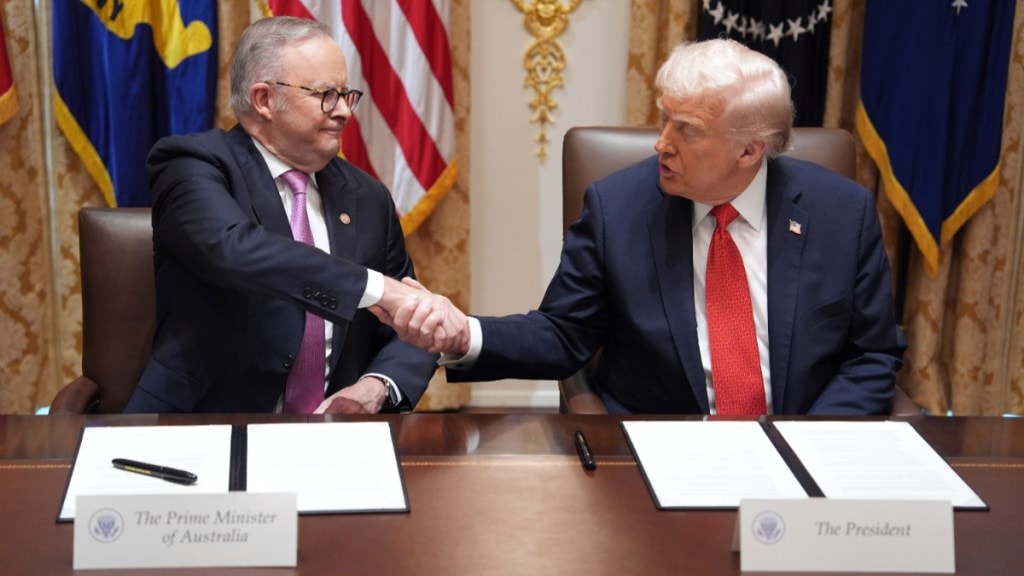US President Donald Trump and Australian Prime Minister Anthony Albanese have signed an agreement to strengthen the supply of rare earths and other important minerals, as the Trump administration works to reduce China’s control over the market. Albanese said the deal will help fund a group of projects worth $8.5 billion that aim to boost Australia’s mining and processing capacity.
US-Australia Critical Minerals Deal – Key Points
- According to the agreement, both countries will invest $1 billion in related projects in the US and Australia over the next six months. The US and Australia have been cooperating on this issue since Trump’s first term, but Albanese said this new deal will take their partnership to the next stage.
- Trump also spoke about Australia’s multi-billion-dollar submarine deal with the US and UK, called Aukus, saying it was “full steam ahead.” Earlier this year, the deal drew attention when the Trump administration said it would review the plans to make sure they aligned with its “America First” policy. This raised questions about whether Australia could buy US submarines to replace its aging fleet. When asked if Australia would receive the submarines, Trump replied: “Oh no, they’re getting them.” China currently produces around 70% of the world’s rare earths and handles 90% of their processing, according to BBC. These minerals are used in many products, including defense equipment, computer chips, and cars. US companies depend heavily on these materials, leaving them at risk this year as China has limited access in response to new U.S. tariffs and rising trade tensions.
- The US Export-Import Bank announced that it has issued seven Letters of Interest worth over $2.2 billion to support key mineral projects in Australia that align with US interests, according to Reuters. These letters were sent to companies including Arafura Rare Earths, Northern Minerals, Graphinex, Latrobe Magnesium, VHM, RZ Resources, and Sunrise Energy Metals. EXIM said the move marks the next step in strengthening access to the minerals needed for US manufacturing, defense, and other vital industries.
- Both the governments agreed that they will support US aluminium company Alcoa in building a gallium plant next to its alumina refinery in Western Australia. The plant could produce up to 10% of the world’s gallium supply. The announcement lifted Alcoa’s shares on the Australian stock market by 8%.
- Gallium is a key mineral used in making alumina and is important for technology, especially in semiconductors and defense. Australia said it would provide up to $200 million in low-interest funding for the project, including offtake rights for the government. The US will also invest in the project with similar offtake rights.
- In August, Alcoa signed a joint development agreement with Japan Australia Gallium Associates (JAGA), a partnership between the Japanese government and Sojitz Corp. After completing feasibility studies, a new company jointly owned by the US and Australian governments and Alcoa is expected to partner with JAGA to build the plant, which Alcoa will operate.
- Albanese said the deal is meant to speed up investment in three types of projects, including US funding for processing plants in Australia.
- The two countries also agreed to cooperate on matters like pricing, permits, and government review rules for selling companies and projects in the sector.

